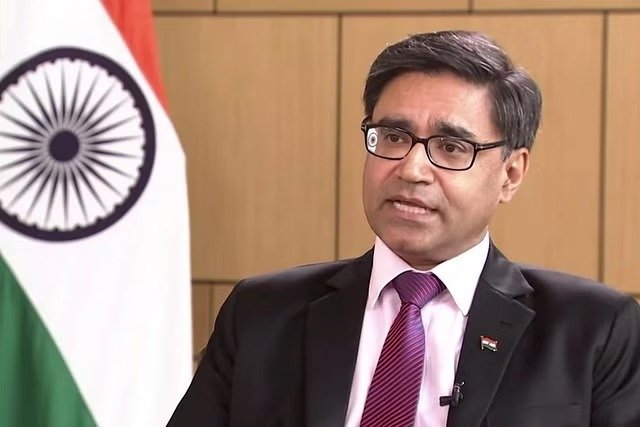
There are stories that history forgets, not because they lack pain, but because they are too quiet, too dignified to scream.
The story of the Kashmiri Pandits is one such tale—of a community ripped from their roots, their temples desecrated, their homes abandoned in the dead of night, carrying nothing but faith and a fading photograph of what once was. A community exiled in their own country, silenced by fear, and forgotten by time.
And yet—they rose.
Not with protests. Not with revenge. But with books, belief, and backbone. In the face of unimaginable pain, they clung to knowledge. To discipline. To resilience.
One such story is that of Vikram Misri—a boy born in Srinagar on 7 November 1964, into the serene, intellectual world of Kashmiri Hindus. His early life echoed with the sounds of temple bells and the scent of chinars. But that peace was shattered by a storm of militancy that swept through the valley in the late 1980s and 90s—a storm not born of the people, but of political poison fed across the border by Pakistan.
Like thousands of others, the Misri family was uprooted—not because they broke the law, but because they simply existed. Because they prayed differently. Because they were marked.
But pain did not define Vikram Misri. He did not burn with hatred—he burned with purpose.
After finishing his schooling in Burn Hall and Scindia, and graduating from Hindu College and XLRI, he joined the Indian Foreign Service in 1989—the very year many of his own were forced to flee. While others carried guns, he picked up treaties. While others chanted slogans, he studied silence.
He went on to serve India in Brussels, Tunis, Spain, Myanmar, and most importantly—as Ambassador to China during one of India’s most delicate security crises, the 2020–21 border standoff. Later, he became Deputy National Security Advisor, and today, he holds the office of India’s Foreign Secretary—a post of immense strategic importance.
He has advised three Indian Prime Ministers—Gujral, Manmohan Singh, and Narendra Modi. But even as he sat in the most powerful rooms of the country, a part of his soul always remained in the narrow lanes of Srinagar, with the scent of home that was stolen.
Vikram Misri is more than a diplomat—he is a quiet symbol of an entire people who refused to be erased. His rise is not just personal success; it is the triumph of memory over forgetting, of dignity over hate, of perseverance over persecution.
And yet, through it all, he has never used his position for vendetta. His voice against Pakistan-sponsored terror is not rooted in bitterness, but in truth. He does not accuse communities—he condemns ideologies of hate, the policies of states that turned Kashmir from a valley of peace into a graveyard of harmony.
In Misri, the world sees what the Kashmiri Pandits have always been—builders, thinkers, survivors.
They may have been scattered, but they are not shattered.
They may have been silenced, but they are not forgotten.
Through every speech he makes, every negotiation he leads, and every stand he takes for India’s sovereignty, Vikram Misri carries the spirit of his ancestors—and the pain of a community that once lost everything, except their will to rise.
Leave a Reply